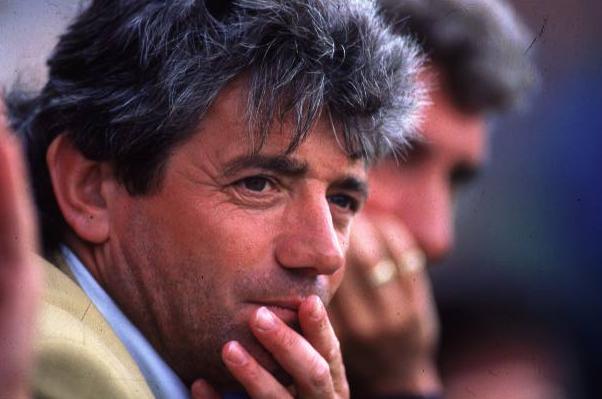
When former player Kevin Keegan returned to St. James' Park on february 1992 in what the press dubbed 'The Second Coming', Newcastle United FC was in free fall. His surprise resignation as manager in January 1997, nearly five years later, came at a point when the club had once again become a force in English football. St. James's Park was full for every match, and the club was on its way to a second consecutive runner's - up slot in the Premiership - just one step away from the top position in English football, that they'd last occupied in 1927.
The situation Keegan inherited from Ossie Ardiles could be traced back to 1990 when, after finishing third, they'd bowed out in the play-offs to Sunderland. Their bitter rivals had ended the season three places lower but went on to be promoted. The following season saw Newcastle slump to 11th and manager Jim Smith gave way to former Spurs and Argentina star Ossie Ardiles.
With English football in the throes of a revolution, the top flight - now renamed the premiership - was more than ever in the mind of Keegan the place where Newcastle United FC and its fans should be. Keegan bought big - and started at the back with full-backs John Beresford and Barry Venison. Other buys would include Charltons inspirational midfielder Rob Lee, Leeds wide man Scott Sellars and Czech keeper Pavel Srnicek. It didn't take Keegan long to reshape and mold the team into a winning formation, and Keegan believed that there was a place in his side for 31-year-old Peter Beardsley, his team mate from the glory years of the 1980's.
Keegan continued to buy in all of the big name players of the time including Colombian marksman Faustino Asprilla in a deal that was worth £7.5 million pounds. The key man that Keegan signed was Geordie-born England striker Alan Shearer, who returned to play along side Les Ferdinand - the fee a national record £15 million. Another ex international David Batty added bite and aggression to the midfield, and when when Manchester United were vanquished 5-0 in October, it seemed a second Championship challenge was on. Kevin Keegan had transformed the struggling Newcastle United into a mighty force of English Football and yet he was not happy as a manager. After a series of bd results towards the end of the 1996 season, and with the club preparing a forthcoming flotation on the stock exchange Keegan renounced his resignation. Many believed that he felt that the end of the line had been reached with Newcastle, and that he would not be able to take them any further. Keegan did however return to the game in 1997 as chief operating officer at Fulham, enticed back to the game by the millions of Mohamed El Fayed and the prospect of awakening a sleeping giant once more.
Kevin Keegan presided over 249 games as Newcastle boss in just five years. Of these 138 (55.4 per cent) were won, 50 (20.1%) were drawn and 61 (24.5%) lost. St. James's Park fans were rewarded for there attendance by 71 per cent victory rate, while the traveling faithful had a four in ten chance of seeing the Magpies come away with all three points. Even after just one season of Keegans control, attendance's at St. James's were up from an average of 16,834 to 21,148. The season of his departure saw crowds averaging 36,466, all paying Premiership prices.